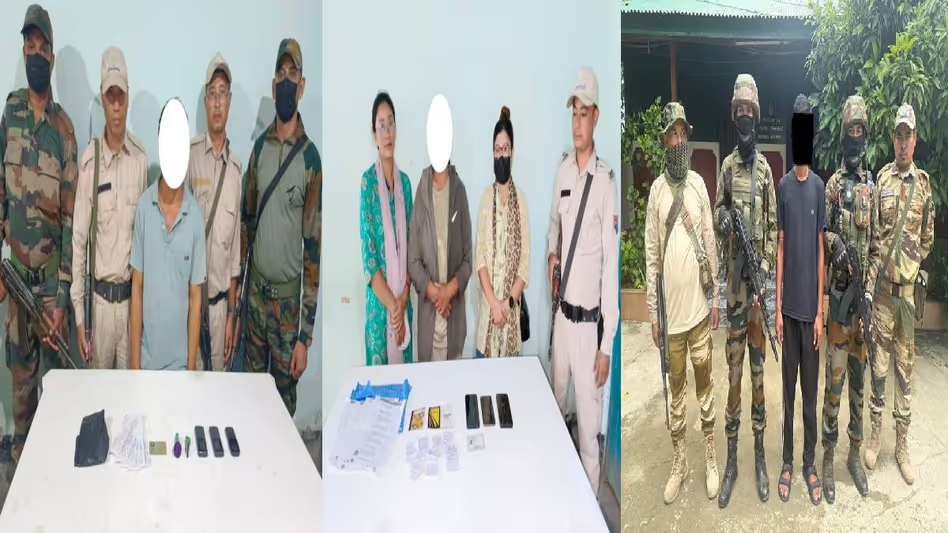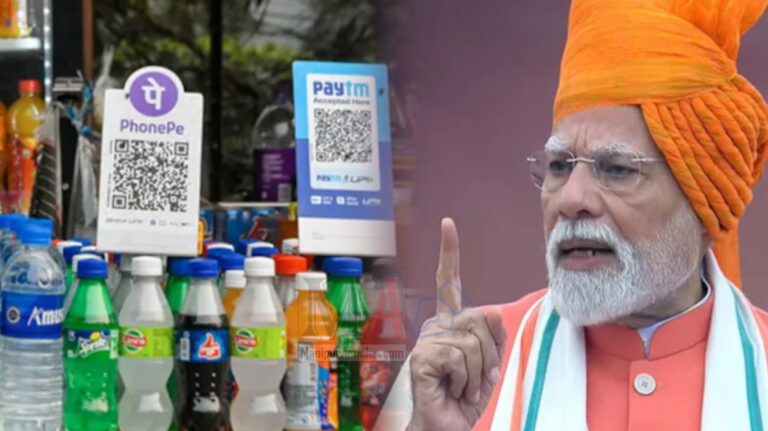Manipur Security Forces Crack Down on Extortion Rackets: 3 Cadres Arrested
Summary of the News Article
Security forces in Manipur conducted coordinated operations on July 24 and 25, 2025, leading to the arrest of three active cadres from the proscribed outfits Kangleipak Communist Party (People’s War Group) [KCP (PWG)] and Revolutionary People’s Front/People’s Liberation Army (RPF/PLA). The operations spanned Imphal West and Thoubal districts, targeting individuals allegedly involved in organized extortion rackets that preyed upon educational institutions, transport associations, local businesses, and residents. Key evidence seized included mobile phones, extortion notes, seal stamps, identity documents, and lists of victims, providing fresh leads to dismantle these criminal networks
Introduction: Unraveling the Extortion Menace in Manipur
Have you ever wondered how invisible strings of terror can weave through the day-to-day lives of ordinary citizens, extracting ransom under the shadow of fear? In Manipur, extortion rackets run by underground outfits have become that unseen puppeteer—pulling at the wallets of school transport operators, shopkeepers, and even educational institutions. But on July 24 and 25, 2025, security forces struck back, striking deep into the heart of these networks. In this deep dive, we’ll explore who was arrested, how they operated, and what this crackdown means for the future of peace and prosperity in Manipur.
The Operations: A Closer Look at the Arrests
Operation Salam Mamang Leikai: Capturing ‘Romesh’
On the morning of July 24, security personnel converged upon Salam Mamang Leikai in Imphal West district. Their primary target: Sorokhaibam Inaocha Singh, a 47-year-old cadre better known by his alias “Romesh,” and a key operative of the KCP (PWG). Rumour had it that Romesh orchestrated extortion campaigns that siphoned money from transport associations and business owners across the valley. Upon searching his residence, officers seized three mobile handsets, a PAN card confirming his identity, five extortion notes printed on official KCP (PWG) letterhead, and two seal stamps marked “KCP (PWG)” and “Revenue Officer (RO)”
Oinam Sawombung Mayai Leikai: The Arrest of ‘Erai Leima’
Just a day later, on July 25, intelligence-led teams moved into Oinam Sawombung Mayai Leikai in Thoubal district. Their target: Oinam Ranjita Devi, 38, also known by the nom de guerre Erai Leima, a prominent female cadre of the RPF/PLA. Sources reveal Erai Leima specialized in targeting educational institutions and school transport associations—places where vulnerability meets opportunity. Officers recovered three mobile phones, an Aadhaar card, and extensive extortion-related documents, including notepads cataloguing names and contact details of potential victims
Leirongthel Pitra Operation: Nabbing Surjit Singh
In a third synchronized operation on July 25, forces arrested Ahanthem Surjit Singh, a 29-year-old RPF/PLA operative from Wangjing SK Leikai. Apprehended in the Leirongthel Pitra area under Nongpok Sekmai Police Station, Surjit Singh is alleged to have coordinated monetary extortion, recruited fresh cadres, and issued threats to both residents and business owners. Though no large physical cache was reported at the time of his arrest, his interrogation aims to unravel the recruitment pipelines that feed the RPF/PLA’s ranks
Proscribed Outfits in Focus: KCP (PWG) and RPF/PLA
Understanding these arrests demands a closer look at the outfits themselves.
- Kangleipak Communist Party (People’s War Group): Originating in the late 1980s, the KCP (PWG) merged radical Maoist ideology with local grievances—land rights, ethnic identity, and economic marginalization. Today, it maintains splinter cells that finance insurgency through extortion, drug trafficking, and illegal timber operations.
- Revolutionary People’s Front/People’s Liberation Army: The RPF/PLA, a conglomerate of ethnic-based militias, claims to safeguard indigenous Naga and Meitei interests. Yet beneath the cloak of regional autonomy, it runs extortion rings, demanding “protection fees” from small businesses and transportation services.
Both outfits leverage local disenchantment, promising social justice while perpetuating violence—an irony not lost on the communities they claim to protect.
The Extortion Racket: How Money is Siphoned in the Valley
Imagine a spider spinning its web: each strand is a threat, and the captured prey are the daily wagers, the school van operators, and the mom-and-pop stores. Extortion notes—handwritten or printed—serve as the spider’s claws, demanding sums that range from a few thousand rupees to lakhs, depending on the target’s capacity to pay.
- Seal Stamps & Letterheads: Authentic-looking stamps (like those seized from Romesh) add bureaucratic muscle—“pay up, or face legal consequences,” they imply.
- Mobile Phones & Ledgers: Multiple SIM cards and painstakingly maintained ledgers allow operatives to track payments and schedule follow-ups.
- Target Spectrum: No one is safe—schools, hospitals, shops, and even temples have been coerced into compliance, fragmenting trust within villages and towns.
By intercepting victims’ communications, cadres disrupt community cohesion, ruling through fear more than ideology.
Conclusion
The July 2025 arrests mark a significant milestone in Manipur’s struggle against extortion rackets orchestrated by proscribed outfits. By dismantling key operational nodes of the KCP (PWG) and RPF/PLA, security forces have delivered a message: no more silent compliance, no more unchecked fear. Yet, the journey to lasting peace is far from over. It requires sustained intelligence, community engagement, legal rigor, and above all, a vision for a future where no family fears a threatening letter on their doorstep. In that future, the real victory will be when the web of extortion unravels entirely, leaving behind only the memory of how fragile peace once was—and how fiercely it was guarded.
FAQs
- What charges are the arrested cadres facing?
They are likely to be charged under the Unlawful Activities (Prevention) Act (UAPA), sections of the Indian Penal Code dealing with extortion, and potentially the Arms Act if weapons are discovered during further searches - How do extortion rackets in Manipur typically operate?
Cadres use official-looking letterheads, seal stamps, and threats of violence to coerce payment. They maintain ledgers of victims and rotate SIM cards to evade detection - Why is Manipur under President’s Rule?
Political instability and security challenges prompted the central government to impose President’s Rule, allowing direct federal oversight aimed at restoring order and facilitating coordinated counterinsurgency efforts. - What immediate impact will these arrests have on local businesses?
Short-term relief from extortion demands should bolster confidence. However, sustained community and economic development programs are crucial to prevent resurgence. - How can citizens report extortion attempts safely?
They can approach local police stations with evidence (notes, recordings) or use anonymous tip-off numbers provided by security forces. Community helplines and NGOs also offer support.






